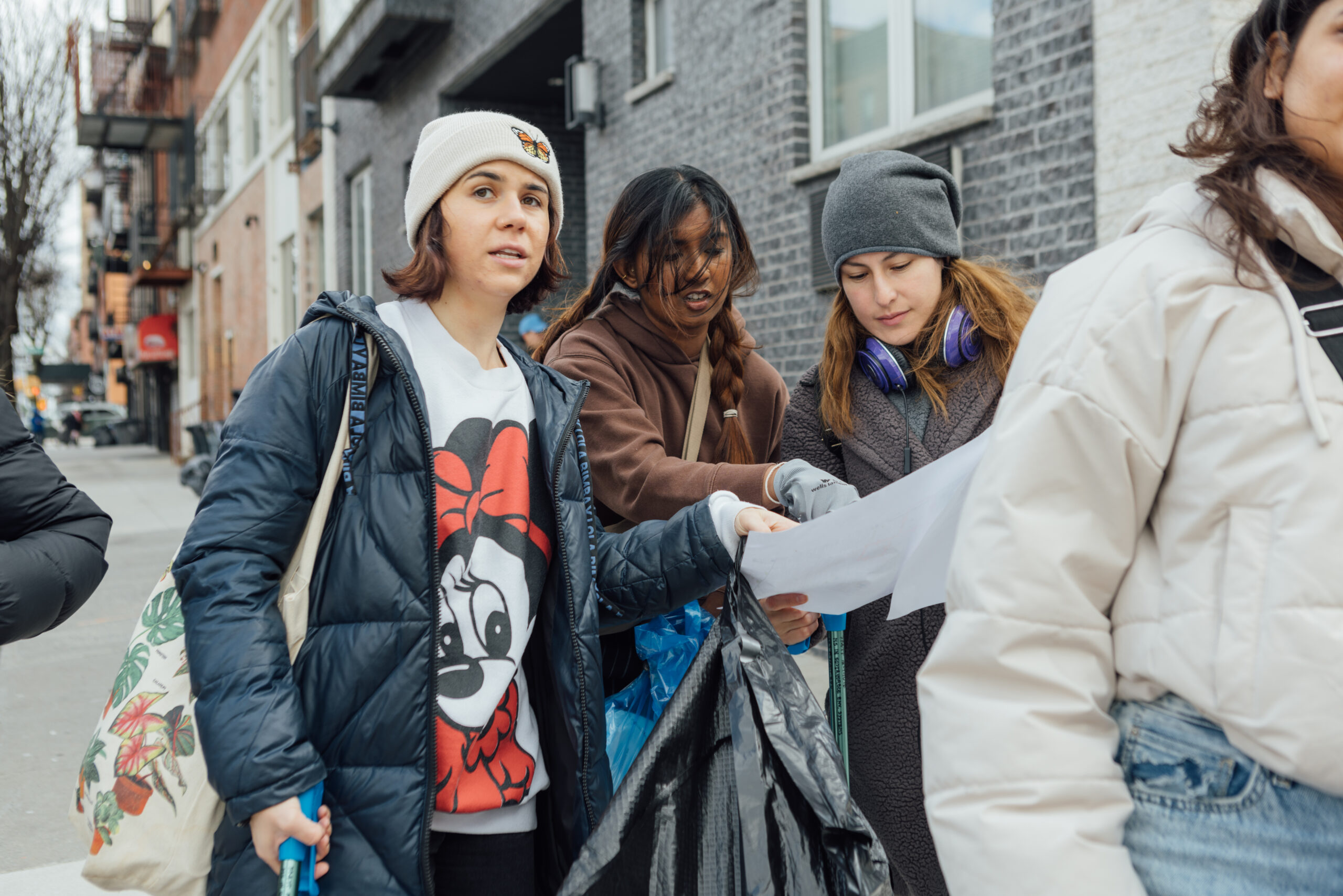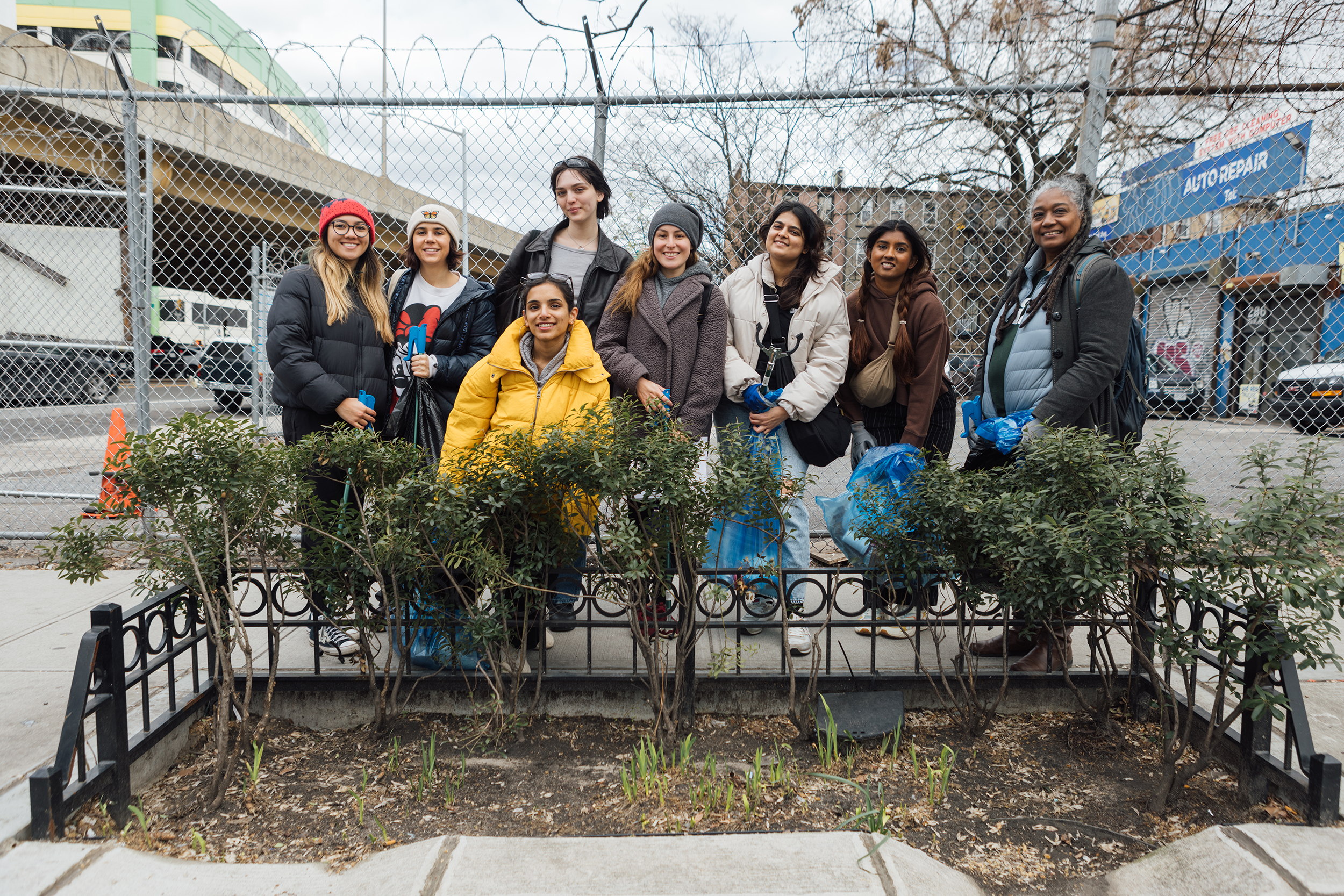Valeria Milesi, MS Sustainable Environmental Systems (SES) ’24, wants to bring renewable energy to towns throughout New York as part of her internship with the New York State Energy and Research and Development Authority (NYSERDA).
The NYSERDA team is meeting with officials to advocate for the benefits of solar, wind, and battery storage. They are also helping towns draft supportive laws, update zoning regulations, and identify the best sites for renewable projects.
“The state’s goals to decarbonize and increase renewable energy are very ambitious and they have really big land-use implications,” Milesi said. “We’re working to build trust and show municipalities that renewable energy is a clean and abundant resource that we need to capitalize on. We won’t be able to transition the grid and meet our Climate Act goals without the support of local planning boards.”
Milesi has experience navigating complex challenges. Before joining Pratt’s Sustainable Environmental Systems program, she worked as a paralegal at Kids in Need of Defense, helping unaccompanied migrant children access resources and assisting attorneys on a variety of cases with petitions and applications. This position made her realize the importance of addressing the root causes of climate change with tangible solutions.
“I originally wanted to do environmental law,” she said. “But after seeing how a lot of these kids were at least indirectly impacted by climate change, law felt like a band-aid solution. I found the SES program at Pratt by researching different sustainability degrees and this one felt more practical, more grassroots.”
Walkable City
Transitioning to Pratt was easy for Milesi. She began walking to the Brooklyn campus and became involved in campus life, taking a leadership role in Leaders in Environmental Advocacy at Pratt (LEAP).
“We organized a few events for Pratt Earth Action Week,” she said. “We hosted a clean-up where we brought trash pickers to clear away garbage in rain gardens to prevent flooding. We also hosted a letter writing workshop where we wrote letters to Governor Hochul to sign a piece of legislation designating community gardens as critical environmental areas (CEAs).”

The letter writing workshop was in support of an effort started by Visiting Instructor in the Graduate Center for Planning and the Environment (GCPE) Raymond Figueroa, whose Taconic Fellowship formed the basis for the community garden legislation.
“He and his team, the NYC Community Garden Coalition with involvement from Earthjustice, basically quantified the benefits that community gardens provide for humans,” Milesi said. “The amount of stormwater they retain, the mental health benefits they provide, the air they filter, the food they generate. He was able to put a dollar sign on these co-benefits.”
Making Connections
Milesi’s classes have shown her how to become a similarly effective analyst and advocate for the environment. An early course provided insight into the challenges facing waste management systems. Students created a plan to improve how the campus cafeteria manages waste.
“I loved that class,” she said. “It really made me think of waste differently. Now I’m doing my capstone [final project] on the intersection of waste and renewable energy—what happens to solar panels, energy storage batteries, and wind turbines when we dispose of them.”
In one class, students examined the climate plans of different cities, finding themes and regional differences, best practices, and areas for improvement. In another, they looked for ways to retrofit city-owned buildings with improved insulation, heat pumps, solar panels, rain gardens, and more. It was also during her coursework that Milesi learned to use GIS, a tool she now relies on at NYSERDA to map renewable energy sites and analyze land use data.
She soon received direct experience in retrofitting when she joined the Pratt Center for Community Development as an Energy Resilience Fellow, where she worked on the EnergyFit program, which seeks to retrofit family homes with energy-saving measures. Milesi called contractors and suppliers to get quotes, looked into additional grants to support the program, and researched the best retrofit options. She traveled to eligible neighborhoods to raise awareness of the program, flyering homes and speaking to community members. She also conducted a mapping analysis of how using Area Median Income would help many more households be eligible for NYSERDA home retrofit programs than State Median Income.
Sustainable Futures
Milesi’s final capstone project shows her dedication to creating systems that reduce waste and take care of the environment. Researching how wind turbines, solar panels, and energy storage batteries are made and discarded, she’s learned that recyclable and compostable models are being developed and is advocating for more repurposing of discarded materials into public infrastructure such as playgrounds, bridges, and benches.
Her time at Pratt has not only expanded her technical knowledge but also connected her with a network of like-minded advocates. As she looks forward to a career in renewable energy, she’s ready to put her skills to work, making clean energy a reality for New York and beyond.
“I found that not just SES but the whole GCPE department, students and faculty and the wider network, is really intellectually curious and very welcoming,” Milesi said. “There are a lot of people who are really passionate and want to do good work in a variety of fields.”
She hopes to build on all that she has learned once she graduates.
“I want to keep working in renewable energy, possibly the intersection of renewable energy and waste,” she said. “I want to put clean energy projects on the grid, that’s what I’m really passionate about, and I think, in terms of [climate change] mitigation, it’s the main thing we need to be doing.”
